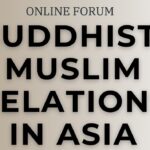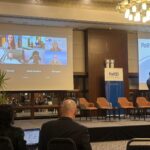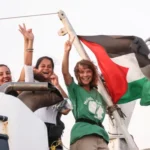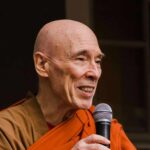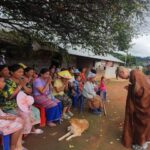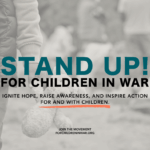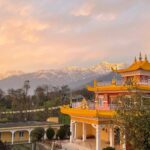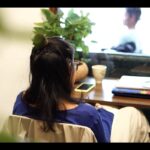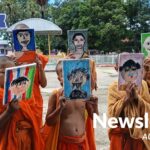?

?
INTERNATIONAL EXCHANGE PLATFORM
Faculty of Arts, Chulalongkorn University, Bangkok
25-27 August 2011
RE-THINKING PROPERTY: pathway to a Well-Being Society scenario
|
This scale of disaster is very tough; yet, we, Japanese, will work hard to turn things around. It would take many years to recover. ? Takayoshi Kusago, Japanese researcher The Fall of Wall Street Is to Market Fundamentalism What the Fall of the Berlin Wall Was to Communism. ? Joseph E. Stiglitz in an interview with Nathan Gardels The Fall of the ?Great Firewall? of China will bring transformation at last. ? Ai Weiwei, Chinese artist In nature’s economy the currency is not money, it is life.
Don?t Own. Share. ? TIME magazine: 10 ideas That Will Change the World |
INTRODUCTION
Welfare State or Well-Being Society?
If doubts prevail whether ?the welfare state? is a feasible option for Asian societies, and ?populism? ? driven by the market-economy and intending to satisfy the needs of citizens at an artificial level only ? is increasingly rejected as an un-sustainable solution[1], other alternatives will have to be explored.
Alternative approaches to our governance and economic systems need un-biased evaluation and passionate exploration of prevailing and new development paradigms.
Does economic growth result in wellbeing?[2] Are the legal foundations of mainstream property-regimes still valid in a context of continuous environmental degradation,
land grabbing[3] and the accumulation of private wealth fed by unspecified economic growth? Can altruism become central in economics?[4] Who Owns the Earth?[5]
Re-thinking the fundamentals of ?property? may lead the way to unlock new development paradigms.
In the second decade of the 21st century our world moves towards a ?Great Turning?[6]. Alternative ideas that initially emerged in the 1970?s are gaining critical mass today. The Club of Rome: Limits to Growth; E.F. Schumacher: ?Buddhist Economics?; the start of IFOAM, the International Federation of Organic Agriculture Movements in France in 1972; the 4th King of Bhutan who pronounced in 1974: ?Gross National Happiness is more important than Gross National Product?.
An enormous diversity of new movements of living alternatives[7] has come up since the 1970?s. To mention only a few: the World Social Forum, ?Cultural Creatives?, the Eco-villages and Transition-towns movement, social entrepreneurship, the Commons Movement.
In Thailand Sulak Sivaraksa established the Sathirakoses Nagapradipa Foundation in 1968. ?Ajarn Sulak? personifies a movement of cultural integrity and engaged spirituality confronting soul-less modernization. He consistently supports the Assembly of the Poor[8]. Around him a cluster of independent NGO?s[9] and social enterprises[10] are blossoming. Sulak Sivaraksa received the Right Livelihood Award[11] in 1985 and the Niwano Peace Prize in 2011. He is a Member of the World Future Council; and Advisor of the School for Wellbeing Studies and Research.
At the dawn of UNCED 2012[12], twenty years after the groundbreaking conference in Rio de Janeiro, the School for Wellbeing proposes to create a modest but effective momentum ? 25-27 August 2011 ? to take stock of what is happening in the world of alternative development, in Asia, Southeast Asia and the Mekong region, in order to contribute to empowering and re-positioning Thai and Asian change agents in the global transformation movement.
The School for Wellbeing Studies and Research
The School for Wellbeing Studies and Research was established, 20 August 2009, as a result of the 3rd Gross National Happiness conference[13] organized in Nongkhai and Bangkok, Thailand, November 2007.
The ?School for Wellbeing? is an independent think-tank being shaped by an international network of dedicated academics from diverse disciplines, and by practitioners and policy makers, primarily inspired by the concept of Gross National Happiness. By common effort the School for Wellbeing offers a creative learning space for a diversity of stakeholders inducing cross-cultural studies in happiness, wellbeing and quality of life.
The School for Wellbeing is building an evidence-based research-platform guided by ?critical holism?[14] in order to explore alternative development paradigms. It enables (young) researchers to undertake related action-research initiatives.
The focus of the School for Wellbeing is on empowering people who are engaged in a much needed integrity-shift towards wellbeing-driven public policy development.
The Patron of the School is H.E. Jigmi Y. Thinley, Hon?ble Prime Minister of Bhutan, while Advisors from Thailand, Bhutan and all over the world support this new initiative[15].
The Prime Minister has conceptualized Gross National Happiness, the national philosophy of Bhutan, in terms of Four Pillars[16]:
? Environmental conservation
? Cultural Promotion
? Good Governance
? Equitable Economic Development
The progress of Gross National Happiness (GNH) is monitored, since 2008, by the GNH Index with 9 domains[17]. At present countries like England, France, USA, Thailand and China[18] are following the idea initiated in Bhutan by exploring, wellbeing-driven development policies and indicators for ?happiness?.
Emerging economies have achieved impressive material ?growth?, but social progress often manifests in not much more than overwhelming consumerism at the cost of little improvement of the quality of life, in particular for the
people surviving at the lower strata of society. ?Cheap labour? is (still) the motor of this economic growth.
Is the socialist ?welfare state? a feasible option for Asian societies? Market economy-driven ?populism? is increasingly recognized as an un-sustainable solution. ?State capitalism? is the kind of compromise/merger between socialism and neo-liberal ideology that can only thrive under authoritarian governance. ?Alternative development?-movements should be further recognized and supported.
|
INTERNATIONAL EXCHANGE PLATFORM
RE-THINKING PROPERTY: pathway to a Well-Being Society scenario
25-27 August 2011, Chulalongkorn University, Bangkok
Format
Creative communication in an atmosphere of multi-stakeholder community building, leading to some clear plans for the future. Rationale To contribute to empowering and re-positioning Thai and Asian change agents in the global transformation movement.
Perspective
? Birth of the ?alternative development?-movement in the 1970?s as an early warning, and a window of opportunity towards change and innovation. ? UNCED in Rio de Janeiro 1982, preceded by the Our Common Future report. ? (Financial) crisis of 2008 and confirmation of climate change, resulting in the global economic and governance system in total ?repair?: the need for a breakthrough of alternative approaches.
Vision
Organic Agriculture (agro-ecology) is the heart of global transformation.
Strategy
Promotion of a consensus-building process ? with the protection of the environment and Human Security as common ground ? between the three basic stakeholders as equal partners[19]: 1. governments, inter-governmental bodies; 2. the business sector; 3. civil society: NGO?s, peoples? organizations, independent thinkers, educators and activists, religious organizations and ethics-based movements, (extended) families, communities etc. Aim
To transform public policies geared by un-specified economic growth, towards wellbeing-driven, sustainable, just and participatory development. With focus on food security (and food quality) for all ? as the basic determinant of quality of life and social security in all its dimensions.
Objectives
? To take stock of alternative development movements in Thailand, the Mekong region, SE Asia, Asia, Asia-Europe and the world, from the perspective of the participants. ? Cross-cultural and inter-disciplinary exchanges and analysis on ?Re-thinking Property? and foresight in particular regarding the vision ?Organic Agriculture is the heart of global transformation?. ? Draft the outlines of a strategic scenario towards a breakthrough of wellbeing-driven, sustainable and just participatory public policy development; guided by multi-stakeholder consensus building. ? To formulate an Action Plan within the competence of actors who are present, and partners to be identified.
Target groups
? Policy makers and advisors of governments and political parties; inter-governmental bodies. ? Responsible business leaders, labour representatives, social investors, social entrepreneurs, Information and Communication Technology (ICT) innovators. ? Civil society opinion leaders, environmental activists, independent religious leaders, community leaders, farmers? representatives, consumers associations, volunteers, independent thinkers, Youth leaders, artists. ? Researchers, academic teachers, business trainers, experts and educators, students, policy makers in research and development; media representatives, creative planners and activists.
|
For more information, please contact hans@schoolforwellbeing.org
or visit www.schoolforwellbeing.org
?
?
[1] ?Thailand is not Ready to Start a Welfare State?, Editorial ?The Nation?, 19 November 2010.
[2] Mis-measuring Our Lives. GDP Does Not Add Up. Report of the Stiglitz-Sen-Fitoussi Commission.
[3] ?Dakar Appeal against the land grab?, World Social Forum 2011.
[4] Altruism and Compassion in Economic Systems April 2010. Mind and Life Institute and University of Zurich.
[5] Our World is Not For Sale, SIFA Public Dialogues with Vandana Shiva and Helena Norberg-Hodge at the Ministry of Foreign Affairs and Thammasat University, Bangkok.
[6] The Great Turning: From Empire to Earth Community by David Korten.
[7] Blessed Unrest. How the Largest Movement in the World Came into Being and Why No One Saw It Coming by Paul Hawken.
[8] Farmers and fisher folk affected by the Pak Moon Dam in Ubon Ratchathani. Affiliated with the Via Campesina-movement of small-scale and landless farmers.
[9] The Spirit in Education Movement (SEM), Ashram Wongsanit, International Network of Engaged Buddhists etc.
[10] Suan Nguen Mee Ma social enterprise is the organizer of the international exchange platform, mandated by the School for Wellbeing Studies and Research.
[11] The ?Alternative Nobel Prize? was established in 1980 by Jakob von Uexkull. In 2009 the Right Livelihood College was launched in Penang. The School for Wellbeing develops affiliation with the College. See: Changing Course, Reclaiming Our Future Report of the 30th Anniversary Conference of the Right Livelihood Award, 14-19 September 2010, Bonn, Germany. Edited
by Sharan Srivinas, Programme Manager, Right Livelihood College.
[12] The first United Nations Conference on Environment and Development was held in Rio, 1992.
[13] The first GNH conference was organized in Thimphu, Bhutan, 2004; followed by gatherings in Canada, Thailand, Bhutan 2008, Brazil and USA.
[14] Development Theory. Deconstruction, Reconstruction. Jan Nederveen Pieterse, 2000.
[15] The core partners are Chulalongkorn University (Chula Global Network), Bangkok, Thailand; the Sathirakoses Nagapradipa Foundation, Thailand; the Centre for Bhutan Studies, Thimphu, Bhutan.
[16] Among others, presented to the UN General Assembly at various occasions, leading to an unprecedented ovation in September 2010.
[17] The GNH Index was designed by the Centre for Bhutan Studies guided by Dasho Karma Ura.
[18] In all countries the question is whether it concerns a genuine ?integrity-shift? or an instrument of populism.
[19] See APPENDIX 1


